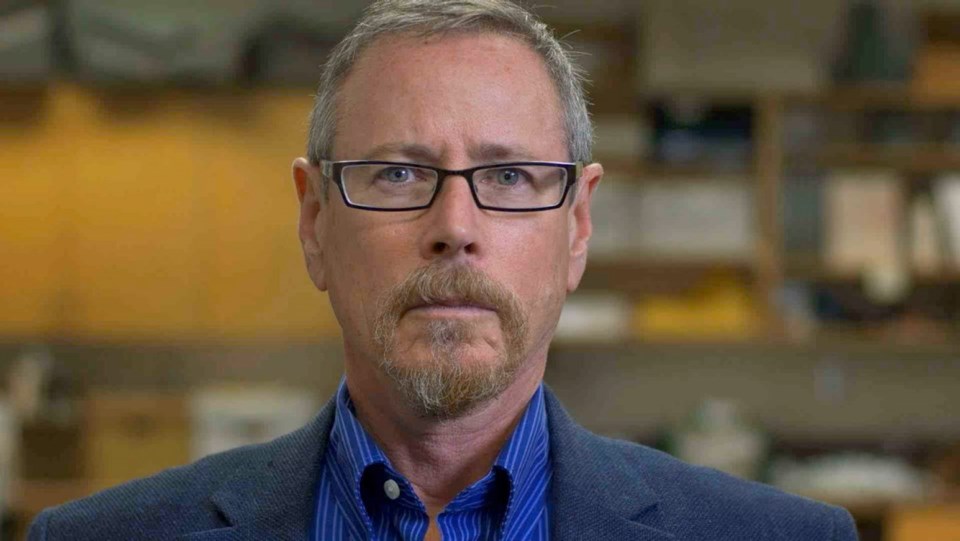What: Transforming Gender
Where: CBC-TV
When: Tonight, 9 p.m.
In Prof. Aaron H. Devor’s perfect world, having to specify whether you’re male or female on most application forms would no longer be relevant.
It’s not that the University of Victoria sociology professor would necessarily want to see a “none of the above” box below those asking if you’re male or female to ensure equality for transgender people.
“Why do we still ask the question at all?” Devor says. “We long ago got rid of those job advertisements that said they were for men’s or women’s jobs, so why do we still ask it on application forms?”
While the founder of UVic’s Transgender Archives acknowledges it has relevance in medical and intimate situations, he says ideally your ID would not have to reveal your gender at all.
As an expert in the development of the social movement for trans support and acceptance in North America, Devor has more to say in Transforming Gender, Marc de Guerre’s documentary that answers almost everything you wanted to know about transgender people, and the struggles many face growing up in conflict with their assigned gender.
“Nature is diversity. Nature loves diversity,” says Devor, imparting his expertise on the multi-faceted, often-misunderstood transgender world in the film airing tonight at 9 on CBC’s Doc Zone.
The timing is apt for this revealing portrait of people ages 11 to 90 who realized they were transgender at different stages of their lives. The film airs a day after transgender-rights Bill C-279 went before the Senate’s Legal and Constitutional Affairs Committee. The bill proposes amendments to include gender identity as a basis for hate-crimes protection in the Canadian Human Rights Code and Criminal Code.
“Like any group fighting for its right to be free and to exist, the path toward the acquisition of long-denied civil rights has been marked equally by great pain and great joy,” de Guerre says. “This film is a window into the lives of transgender people living in a world that is only just now becoming aware of who they are.”
His film features 11 transgender people, from youngsters such as Olie Pullen, from Pointe Claire, Que., and Edmonton, Alta.’s Wren Kaufman, to Stephanie Castle, 89, the twice-married Vancouver author and trans activist who reveals that her former male self once thought she would go to her grave with her “secret” before she had full gender reassignment surgery at age 66.
“I thought I must be the only person in the world affected by this condition,” the retired naval officer, marine insurance underwriter and developer recalls.
While most are Canadians, the group also includes New Yorkers Krystina Elisa Crespo and Geena Rocero, the transgender fashion model-turned-role model who reaffirms that a person’s transgender identity can emerge at any age. “It’s just who you are,” she says. “Sometimes the gender assignment doesn’t match. I don’t think it’s something you just stumble upon.”
The film’s other academic authorities include Dr. Carys Massarella of the Quest Community Health Centre in St. Catherine’s, Ont., research fellow Alex Abramovich at Toronto’s Centre for Addiction and Mental Health, and Hershel Russell, the Toronto-based trans psychotherapist who notes: “There’s nothing new about trans lives. Transgender people are everywhere. We always were, and it’s perfectly normal to be trans.”
While Massarella “chose to put it in a box” while growing up as a male with gender confusion in Sudbury, Ont., she doesn’t advocate putting off a transition decision.
“I’ve never heard a person say I’m glad I waited,” Massarella says. “It’s amazing what a little bit of surgery and some really good hormones can do.”
While Transforming Gender doesn’t delve deeply into the bigger picture, Devor says he was impressed by what the filmmakers achieved in the film, which also touches on issues such as transphobia.
“It’s a good Transgender 101 introduction,” Devor says, adding he liked that “without making an issue of it in the film” everyone in it is either trans or a supporting parent of a young trans person.
Indeed, Transforming Gender dispels several misconceptions and brings into focus the challenges the trans community still faces despite increased acceptance from the rising visibility of gender-variant characters in shows such as Transparent, Orange Is the New Black and Two-4-One, Maureen Bradley’s film festival hit with a transgender protagonist, for which Devor was a consultant.
Despite Russell’s assurance that “there is no harm in this; they’re not going to hurt you,” he says transgender people are still among society’s most persecuted and least-protected groups.
And false perceptions persist, such as the notion that being transgender means you’re deliberately trying to deceive others.
While trans youth have a high risk of suicide, the good news, Russell says, is that studies have shown the risk drops by 93 per cent for those with family support.
There’s still a long way to go. A 2011 survey of 6,000 transgender people found more than half reported being harassed in public washrooms, restaurants and hotels, and that violence remains a threat, especially against transgender women.
Despite its limitations, this moving film provides insight and understanding through the voices of real people whose transgender journeys are as different as their personalities.
